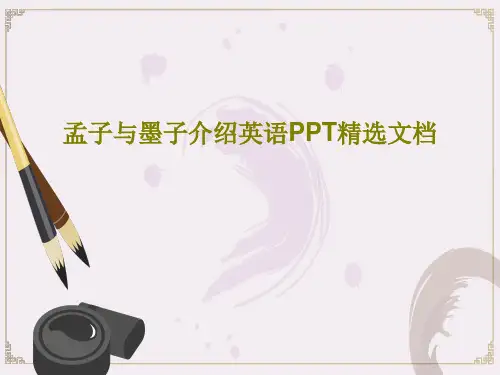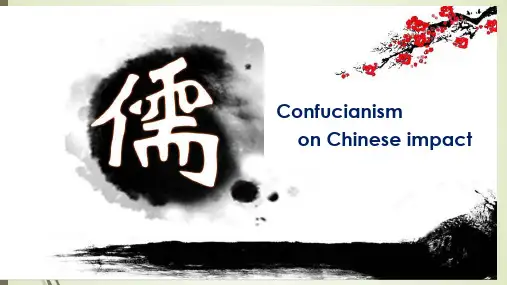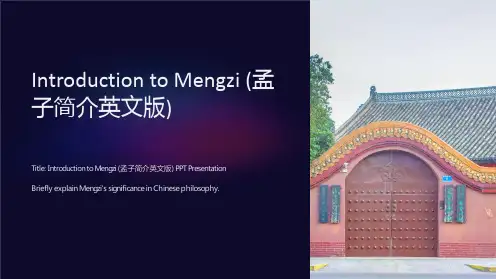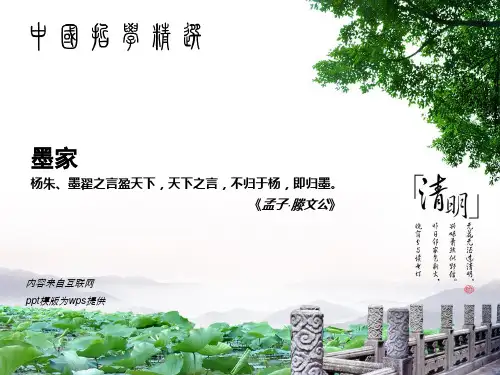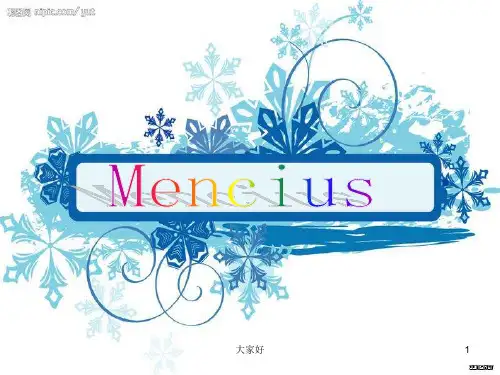孟子与墨子介绍英语PPT
- 格式:pptx
- 大小:274.82 KB
- 文档页数:18
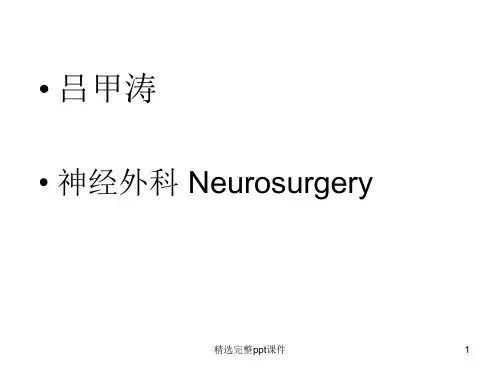
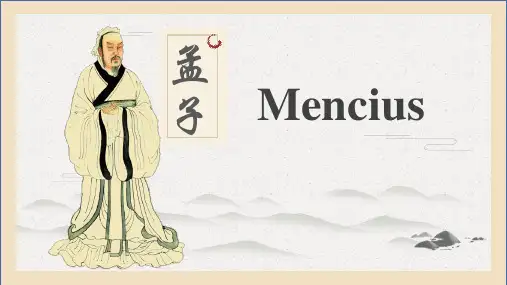
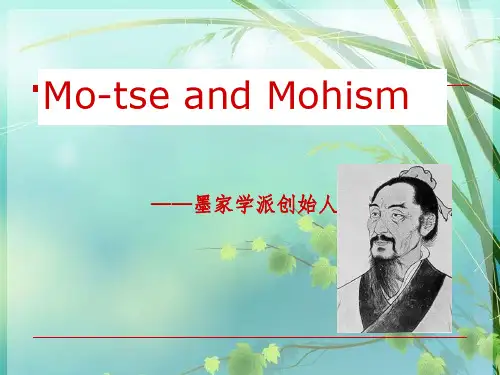
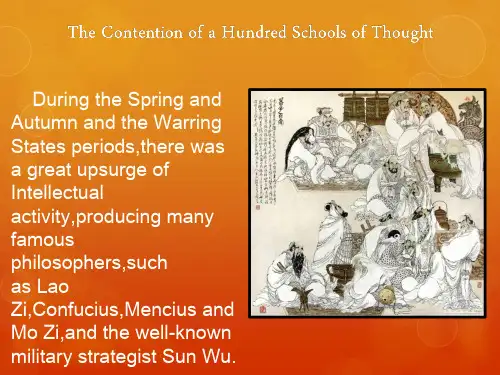
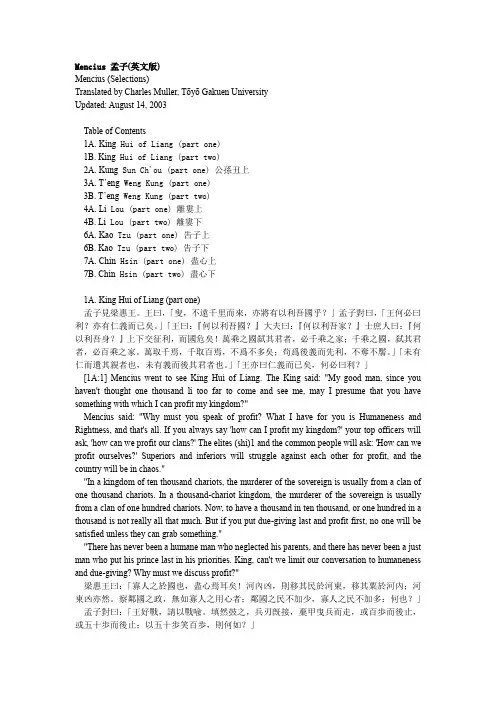
Mencius 孟子(英文版)Mencius (Selections)Translated by Charles Muller, Tōyō Gakuen UniversityUpdated: August 14, 2003Table of Contents1A. King Hui of Liang (part one)1B. King Hui of Liang (part two)2A. Kung Sun Ch'ou (part one) 公孫丑上3A. T’e ng Weng Kung (part one)3B. T’eng Weng Kung (part two)4A. Li Lou (part one) 離婁上4B. Li Lou (part two) 離婁下6A. Kao Tzu (part one) 吿子上6B. Kao Tzu (part two) 吿子下7A. Chin Hsin (part one) 盡心上7B. Chin Hsin (part two) 盡心下1A. King Hui of Liang (part one)孟子見梁惠王。
王曰,「叟,不遠千里而來,亦將有以利吾國乎?」孟子對曰,「王何必曰利?亦有仁義而已矣。
」「王曰:『何以利吾國?』大夫曰:『何以利吾家?』士庶人曰:『何以利吾身?』上下交征利,而國危矣!萬乘之國弑其君者,必千乘之家;千乘之國,弑其君者,必百乘之家。
萬取千焉,千取百焉,不爲不多矣;苟爲後義而先利,不奪不饜。
」「未有仁而遺其親者也,未有義而後其君者也。
」「王亦曰仁義而已矣,何必曰利?」[1A:1] Mencius went to see King Hui of Liang. The King said: "My good man, since you haven't thought one thousand li too far to come and see me, may I presume that you have something with which I can profit my kingdom?"Mencius said: "Why must you speak of profit? What I have for you is Humaneness and Rightness, and that's all. If you always say 'how can I profit my kingdom?' your top officers will ask, 'how can we profit our clans?' The elites (shi)1 and the common people will ask: 'How can we profit ourselves?' Superiors and inferiors will struggle against each other for profit, and the country will be in chaos.""In a kingdom of ten thousand chariots, the murderer of the sovereign is usually from a clan of one thousand chariots. In a thousand-chariot kingdom, the murderer of the sovereign is usually from a clan of one hundred chariots. Now, to have a thousand in ten thousand, or one hundred in a thousand is not really all that much. But if you put due-giving last and profit first, no one will be satisfied unless they can grab something.""There has never been a humane man who neglected his parents, and there has never been a just man who put his prince last in his priorities. King, can't we limit our conversation to humaneness and due-giving? Why must we discuss profit?"梁惠王曰:「寡人之於國也,盡心焉耳矣!河內凶,則移其民於河東,移其粟於河內;河東凶亦然。
